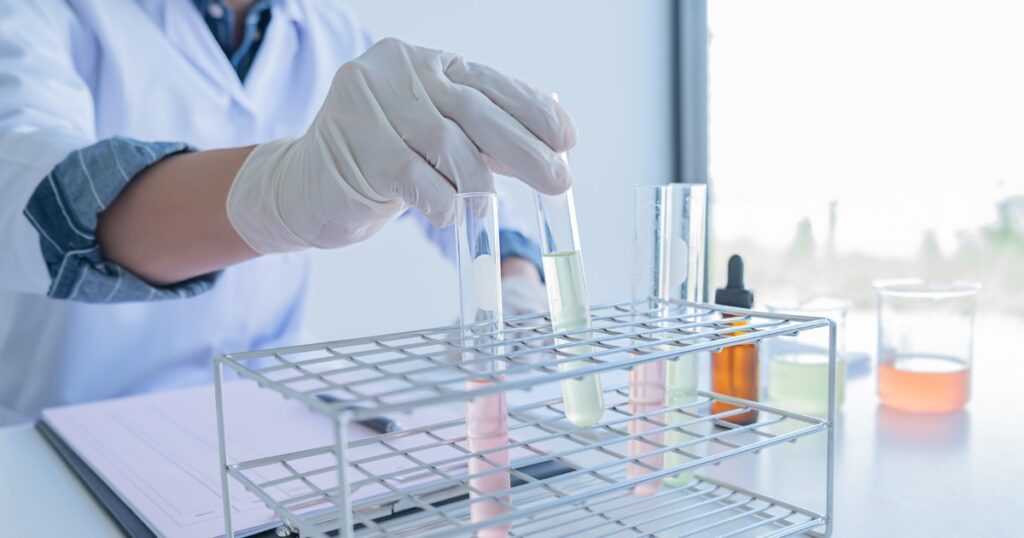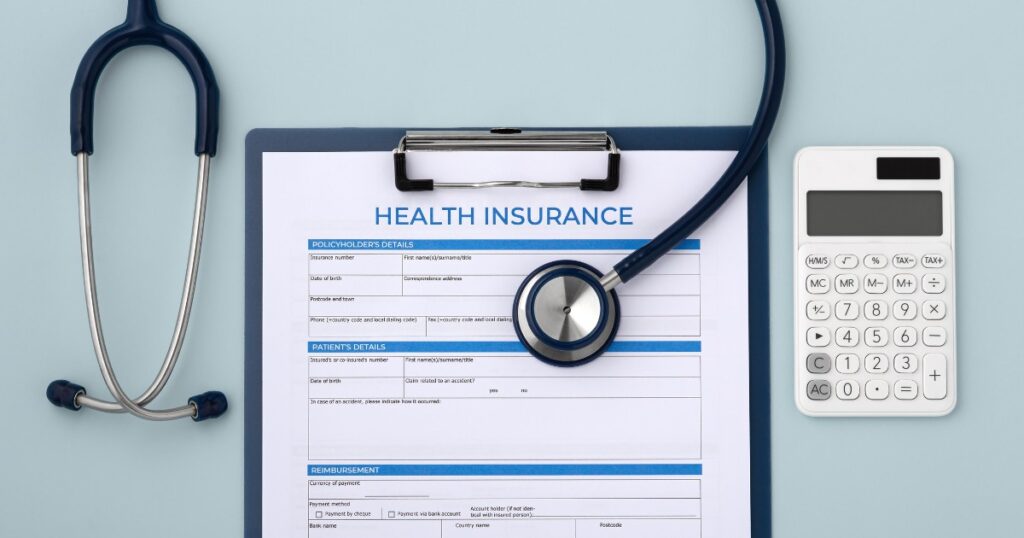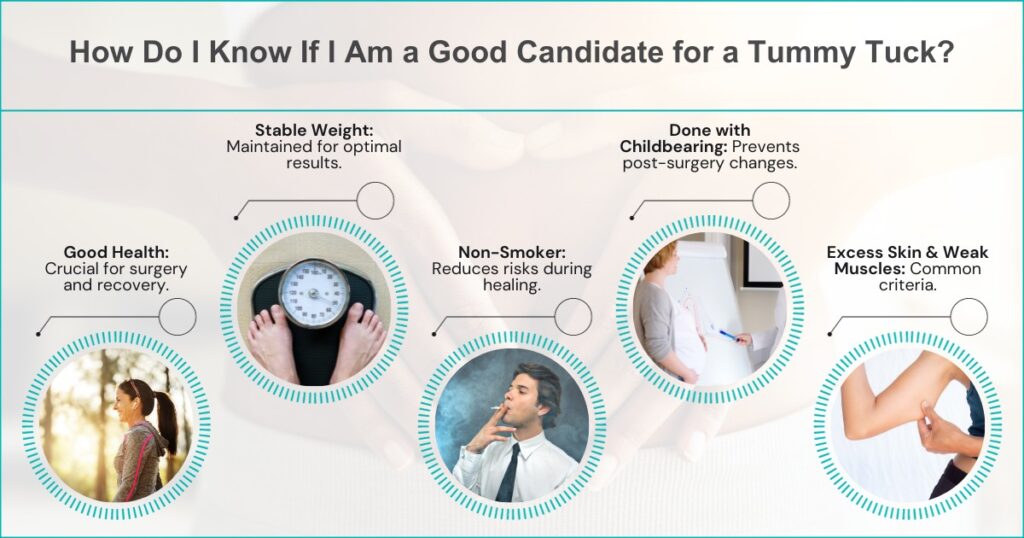When considering a transformative tummy tuck surgery , the initial consultation is a pivotal step. The tummy tuck consultation allows detailed discussions with your surgeon regarding expectations, procedural steps, and personalised care strategies.
For a successful consultation, it is important to prepare thoroughly so that all aspects of the surgery are clear and your goals align with the potential results.
What Should I Expect During My Tummy Tuck Consultation?
During a tummy tuck consultation, patients can anticipate a detailed discussion with their surgeon about their medical history, aesthetic goals, and the specifics of the procedure. It is a time for evaluation and education about the surgery.
| Step | Description | Estimated Duration |
| Initial Assessment | Discuss the medical history and examine the abdominal area | 15-30 minutes |
| Goal Setting | Define aesthetic goals and what can realistically be achieved | 10-20 minutes |
| Surgical Plan Overview | Walkthrough of the tummy tuck procedure and techniques | 20-30 minutes |
| Risk and Recovery Information | Outline potential risks and expected recovery timeline | 10-15 minutes |
| Visual Aids | Review before-and-after photos of previous patients | 5-10 minutes |
| Q&A Session | Address patient’s questions and concerns | 10-20 minutes |
This table outlines the critical components of a tummy tuck consultation. It provides an estimated duration for each part of the discussion, ensuring patients have a comprehensive understanding of the process and can plan their consultation accordingly.
Book A Consultation With Dr Tarek Bayazid
Top-rated Plastic Surgeon For Tummy Tuck in Dubai
Installment Plan Available
How to Prepare for a Tummy Tuck Consultation with Your Surgeon?
While preparing yourself emotionally for a tummy tuck is essential, it is equally important that you come prepared with the necessary documents.
For the consultation to go successful, patients should gather their medical history, list questions for their surgeon, and have realistic expectations about the outcome.
- Medical Records Ready : Have all your current medical information available.
- List of Medications : Inform the surgeon about any medications you are taking.
- Questions Prepared : Write down questions to remember to cover all your concerns.
- Photographic Examples : Bring photos to illustrate your desired results.
- Understanding of Limitations : Recognize that results vary based on individual circumstances.
- Financial Consideration : Be prepared to discuss the costs and your budget.
- Support System : Consider who will assist you during your recovery period.
What Are the Risks and Complications Associated with a Tummy Tuck?
Tummy tuck surgeries, like all invasive procedures, come with potential risks, such as infections, bleeding, and complications from anaesthesia, which should be discussed with your surgeon.
| Risk/Complication | Description | Prevention/Management |
| Infection | Bacterial contamination of the wound | Sterile techniques, antibiotics |
| Hematoma | Accumulation of blood under the skin | Proper technique, compression garments |
| Poor Scarring | Abnormal scars that may be unsightly or keloid | Post-Operative Care for Tummy Tuck , silicone sheets |
| Anaesthesia Complications | Adverse reactions to anaesthesia | Pre-op screening, monitoring during surgery |
| Deep Vein Thrombosis (DVT) | Blood clots in deeper body veins, potentially life-threatening | Early mobilisation, blood thinners |
| Numbness | Loss of sensation around incision sites | Typically temporary, monitor for changes |
This table provides an overview of common risks and complications associated with a tummy tuck procedure, their descriptions, and the usual preventative measures or management techniques employed to mitigate them.
How Long Is the Recovery Period After a Tummy Tuck?
The tummy tuck recovery period can vary but generally spans several weeks, with patients often returning to normal activities within six to eight weeks post-operation.
- Immediate Post-Op: The first few days require strict rest.
- Activity Resumption : Gradual return to light activities is typically within two weeks.
- Work and Exercise : Most patients return to work in a few weeks, with restrictions.
- Healing Time Frame: Complete internal healing may take several months.
- Follow-Up Visits : Regular appointments will monitor your recovery progress.
- Swelling and Bruising : Expect these to subside gradually over a few weeks.
- Long-Term Care : Proper care can affect the longevity of the results.
Tummy Tuck Results: What Can Be Expected?
Realistic expectations for a tummy tuck include a flatter abdomen and reduction in excess skin, with final results being influenced by individual factors like skin elasticity and body shape.
- Body Contouring: A tummy tuck offers a more contoured abdominal profile.
- Excess Skin Removal: It effectively reduces excess skin and fat.
- Muscle Tightening: Abdominal muscles can be tightened during the procedure.
- Weight Stability : Best results occur when patients maintain a stable weight post-surgery.
- Scar Placement: Scars are typically placed where they can be hidden by underwear.
- Patient Satisfaction : Most patients experience high satisfaction with outcomes.
- Realism is Key : Surgeons emphasise realistic goals rather than perfection.
What Type of Anaesthesia Will Be Used During The Procedure?
General anaesthesia is commonly used during a tummy tuck procedure to ensure the patient is comfortable and pain-free, with the type being determined by the surgeon’s assessment.
- General Anesthesia: The most common choice to ensure patient comfort.
- Anesthesiologist Consultation : You’ll meet the specialist before surgery.
- Safety Protocols: Your medical team will monitor you closely throughout the procedure.
- Allergy Check s: Be sure to discuss any allergies to medications.
- Recovery from Anesthesia: Understanding the recovery time and side effects is essential.
- Alternative Options : In rare cases, local anaesthesia with sedation may be considered.
- Pre-Operative Instructions : Follow specific guidelines regarding eating and drinking before surgery.
Are There Any Preoperative Tests Required Before a Tummy Tuck?

Preoperative tests before a tummy tuck are necessary to ensure the patient’s safety. They may include blood tests, EKG, and sometimes a medical evaluation to clear the patient for surgery.
| Test Type | Purpose | Estimated Timing |
| Complete Blood Count (CBC) | Assess overall health and readiness for surgery | Usually, 1-2 weeks prior |
| Electrocardiogram (EKG) | Check heart health, especially for those with heart risk | As advised by the surgeon |
| Coagulation Profile | Ensure proper blood clotting ability | A few days to a week before the surgery |
| Liver and Kidney Function Tests | Evaluate organ health for anaesthesia and healing | As needed based on medical history |
| Urinalysis | Rule out infection or other urinary issues | Before surgery |
| Pregnancy Test | Ensure the patient is not pregnant | Right before surgery |
This table lists the standard preoperative tests a patient may require before undergoing a tummy tuck, detailing the purpose and expected timing of each test, which helps ensure patient safety and readiness for surgery.
How To Ensure a Smooth Recovery Post-Tummy Tuck?
Ensuring a smooth recovery post-tummy tuck involves following the surgeon’s aftercare instructions religiously, managing pain effectively, and allowing sufficient time for the body to heal.
- Follow Surgeon’s Guidelines: Adherence to aftercare instructions is vital.
- Pain Management : Use prescribed medications as directed for pain relief.
- Rest Adequately : Allow your body the time it needs to rest and recover.
- Nutrition and Hydration : Maintain a healthy diet and stay hydrated.
- Activity Restrictions : Avoid strenuous activities as advised.
- Support System: Arrange for assistance with daily tasks during early recovery.
- Wound Care : Proper incision care is critical to prevent infection.
Is Assistance Required at Home After A Tummy Tuck Surgery?
After a tummy tuck , having someone around to assist at home is crucial. As the patient’s mobility is limited during the first week, everyday tasks will require assistance.
- Immediate Post-Op Care : Assistance will be needed with mobility and personal care.
- Medication Management : Help with tracking and taking medications is beneficial.
- Child and Pet Care: Patients with young children or pets need extra help.
- Household Tasks: Assign someone to manage tasks like cooking and cleaning.
- Emergency Preparedness : It’s essential to have someone available in case of complications.
- Companionship: Emotional support can aid in a quicker recovery.
- Follow-Up Visits : Having someone to drive to appointments is often necessary.
How to Manage Scars and Incisions After a Tummy Tuck?
Managing scars and incisions after a tummy tuck includes proper wound care, avoiding sun exposure on the healing tissue, and possibly using silicone sheets or gel to aid in the scar healing process.
- Incision Care: Follow the surgeon’s instructions for caring for your wounds.
- Sun Protection : Keep scars out of the sun to prevent darkening.
- Silicone-Based Products: These can promote healing and reduce scar appearance.
- Avoid Strenuous Activity: Preventing wound stress is critical to good healing.
- Scar Massage : Once healed, massage may be recommended to soften the scar tissue.
- Patience with Healing : Scars typically take months to mature and fade.
- Professional Advice : Consult with your surgeon for personalised scar treatment options.
Do Health Insurance Plans Cover Tummy Tuck Surgery?

Health insurance generally does not cover cosmetic procedures like a tummy tuck unless deemed medically necessary, such as for a hernia repair or to alleviate health issues caused by excess skin. The Preferred Method for Abdominoplasty Incision is the best way doctors cut the skin when doing a tummy tuck surgery. It helps to make the scar less noticeable and the healing faster.
- Insurance Policy : Review your policy for specific coverage details.
- Medical Necessity : Insurance may cover if there’s a proven medical need.
- Pre-Authorization: Obtain insurance pre-authorization if applicable.
- Surgeon’s Documentation: Your surgeon can provide necessary medical justifications.
- Out-of-Pocket Costs : Be prepared for possible expenses not covered by insurance.
- Payment Plans : Ask about financing options or payment plans available.
- Secondary Procedures : Additional procedures may affect overall costs and coverage.
How Do I Know If I Am a Good Candidate for a Tummy Tuck?

Good candidates for a tummy tuck are typically those who have excess abdominal skin, weakened abdominal muscles, are in good overall health, and have realistic expectations about the surgery’s outcome.
- Physical Health: Being in good health is crucial for surgery and recovery.
- Stable Weight: Candidates should be at a durable weight for best results.
- Non-smoker: Smoking can affect healing and increase the risk of complications.
- Finished Childbearing : Pregnancy post-surgery can alter results.
- Excess Skin : Ideal candidates have excess skin that hasn’t responded to diet or exercise.
- Muscle Weakness : Beneficial for those with weakened or separated abdominal muscles.
- Informed Patient: Understanding the procedure, risks, and recovery is essential.
Tummy tuck consultation is the cornerstone of your surgical journey. It’s an investment in time to align surgical possibilities with your body contouring aspirations. With the proper preparation, questions, and understanding of the process, patients can navigate their tummy tuck consultation with confidence, ensuring clarity and peace of mind as they move forward with their decision.
Dr Tarek Bayazid , a renowned plastic surgeon in Dubai, is acclaimed for masterful facial rejuvenation and body contouring. His education, international training, and memberships in elite societies underscore his expertise. Dr Tarek is the choice for those seeking transformative outcomes and is known for a patient-centric approach and natural-looking results.
Taking the first step toward your aesthetic goals starts with a consultation. Choose Dr. Tarek Bayazid for a blend of artistry and precision that promises to enhance and invigorate.
Book a Consultation with Dr Tarek for unrivalled care in your tummy tuck journey.







